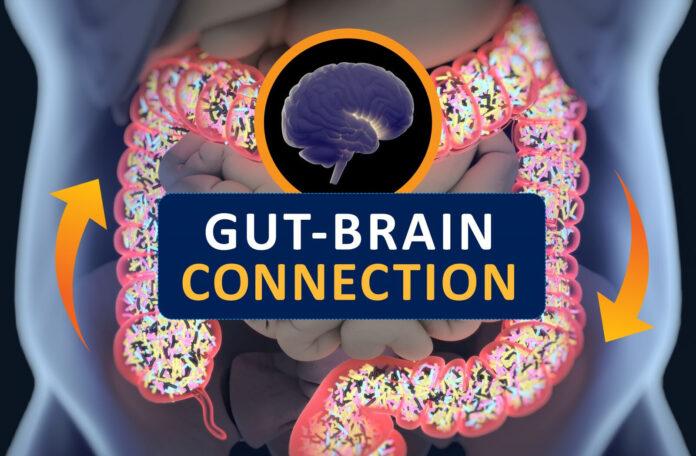The gut microbiome, a complex ecosystem of trillions of microorganisms living in our digestive tract, has gained significant attention in recent years for its profound impact on various aspects of health, including mental well-being. Often referred to as the “second brain,” the gut is intricately linked to the brain through a communication network known as the gut-brain axis. This connection suggests that the state of our gut microbiome can significantly influence our mental health, affecting mood, cognition, and overall mental well-being.
Understanding the Gut-Brain Axis
The gut-brain axis is a bidirectional communication pathway that connects the central nervous system (the brain and spinal cord) with the enteric nervous system (the nervous system of the gut). This axis involves various signaling pathways, including the immune system, vagus nerve, and neuroendocrine system, allowing the gut and brain to send and receive signals to each other. The gut microbiome plays a crucial role in this communication by producing and modulating neurotransmitters and other molecules that affect brain function.
Key Ways the Gut Microbiome Affects Mental Health
- Neurotransmitter Production
The gut microbiome is directly involved in the production of several neurotransmitters that influence mood and behavior. For example:
- Serotonin: Approximately 90% of the body’s serotonin, a neurotransmitter that regulates mood, sleep, and appetite, is produced in the gut. Certain gut bacteria, such as Bifidobacterium and Lactobacillus, are involved in serotonin synthesis. A healthy balance of these bacteria can promote positive mood and mental well-being.
- GABA (Gamma-Aminobutyric Acid): GABA is a neurotransmitter that promotes relaxation and reduces anxiety. Some gut bacteria, such as Lactobacillus and Bifidobacterium, produce GABA, influencing brain function and potentially reducing anxiety levels.
- Inflammation and Immune Response
Chronic inflammation is linked to several mental health disorders, including depression and anxiety. The gut microbiome plays a crucial role in regulating the body’s immune response and inflammation levels. A healthy microbiome can prevent the overproduction of pro-inflammatory cytokines, which are linked to depression and other mental health issues. Conversely, an imbalanced gut microbiome (dysbiosis) can lead to increased intestinal permeability or “leaky gut,” allowing inflammatory compounds to enter the bloodstream and potentially affect brain function and mood.
- Stress Response Regulation
The gut microbiome influences the body’s stress response by interacting with the hypothalamic-pituitary-adrenal (HPA) axis, the central stress response system. Dysbiosis, or an imbalance in gut bacteria, can lead to an overactive HPA axis, resulting in elevated levels of stress hormones such as cortisol. Chronic high cortisol levels are associated with anxiety, depression, and cognitive impairment. By maintaining a balanced gut microbiome, it’s possible to modulate the stress response and improve mental resilience.
- Impact on Cognitive Function
Emerging research suggests that the gut microbiome also plays a role in cognitive function, including memory, learning, and decision-making. Certain bacteria produce metabolites, such as short-chain fatty acids (SCFAs), which can cross the blood-brain barrier and influence brain function. SCFAs, like butyrate, have been shown to have neuroprotective effects, supporting brain health and potentially enhancing cognitive function.
- Mood Regulation
The gut microbiome can influence mood regulation through its effects on the vagus nerve, the longest cranial nerve that directly connects the gut to the brain. By influencing vagal tone, the gut bacteria can impact brain activity related to mood and emotional regulation. Probiotics, often referred to as “psychobiotics,” have been shown in some studies to improve symptoms of depression and anxiety by positively influencing the gut microbiome and enhancing vagal nerve signaling.
Factors Affecting Gut Health and Mental Well-being
Several factors can influence the composition and health of the gut microbiome, which in turn can affect mental health:
- Diet: A diet rich in fiber, fermented foods, and prebiotics supports a healthy gut microbiome, whereas a diet high in processed foods, sugar, and unhealthy fats can lead to dysbiosis.
- Antibiotic Use: Overuse or misuse of antibiotics can disrupt the balance of the gut microbiome, potentially leading to mental health issues.
- Stress: Chronic stress can alter gut bacteria composition, contributing to dysbiosis and affecting mental health.
- Sleep: Poor sleep quality and duration can negatively impact the gut microbiome, influencing mental well-being.
- Exercise: Regular physical activity has been shown to promote a healthy gut microbiome, which can improve mental health.
Improving Mental Health Through Gut Health
To support mental health through gut health, consider the following strategies:
- Eat a Balanced Diet: Focus on a diet rich in fiber, fruits, vegetables, whole grains, lean proteins, and healthy fats. Include fermented foods like yogurt, kefir, sauerkraut, and kimchi to boost beneficial bacteria.
- Take Probiotics and Prebiotics: Probiotic supplements can introduce beneficial bacteria to the gut, while prebiotics (found in foods like garlic, onions, and bananas) feed and promote the growth of these bacteria.
- Manage Stress: Engage in stress-reducing activities such as meditation, yoga, deep breathing exercises, and regular physical activity to support a healthy gut-brain axis.
- Stay Hydrated: Adequate hydration is essential for overall health, including gut health.
- Avoid Overuse of Antibiotics: Use antibiotics only when necessary, as they can disrupt the gut microbiome.
Conclusion
The connection between the gut microbiome and mental health is a rapidly growing area of research that underscores the importance of maintaining gut health for overall well-being. A healthy gut microbiome can support neurotransmitter production, reduce inflammation, regulate the stress response, and enhance cognitive function, all of which contribute to better mental health. By adopting lifestyle changes that promote a balanced gut microbiome, individuals can potentially improve their mental health and reduce the risk of mood disorders, anxiety, and cognitive decline. As with any health strategy, it is advisable to consult a healthcare professional before making significant changes to diet or starting new supplements.

